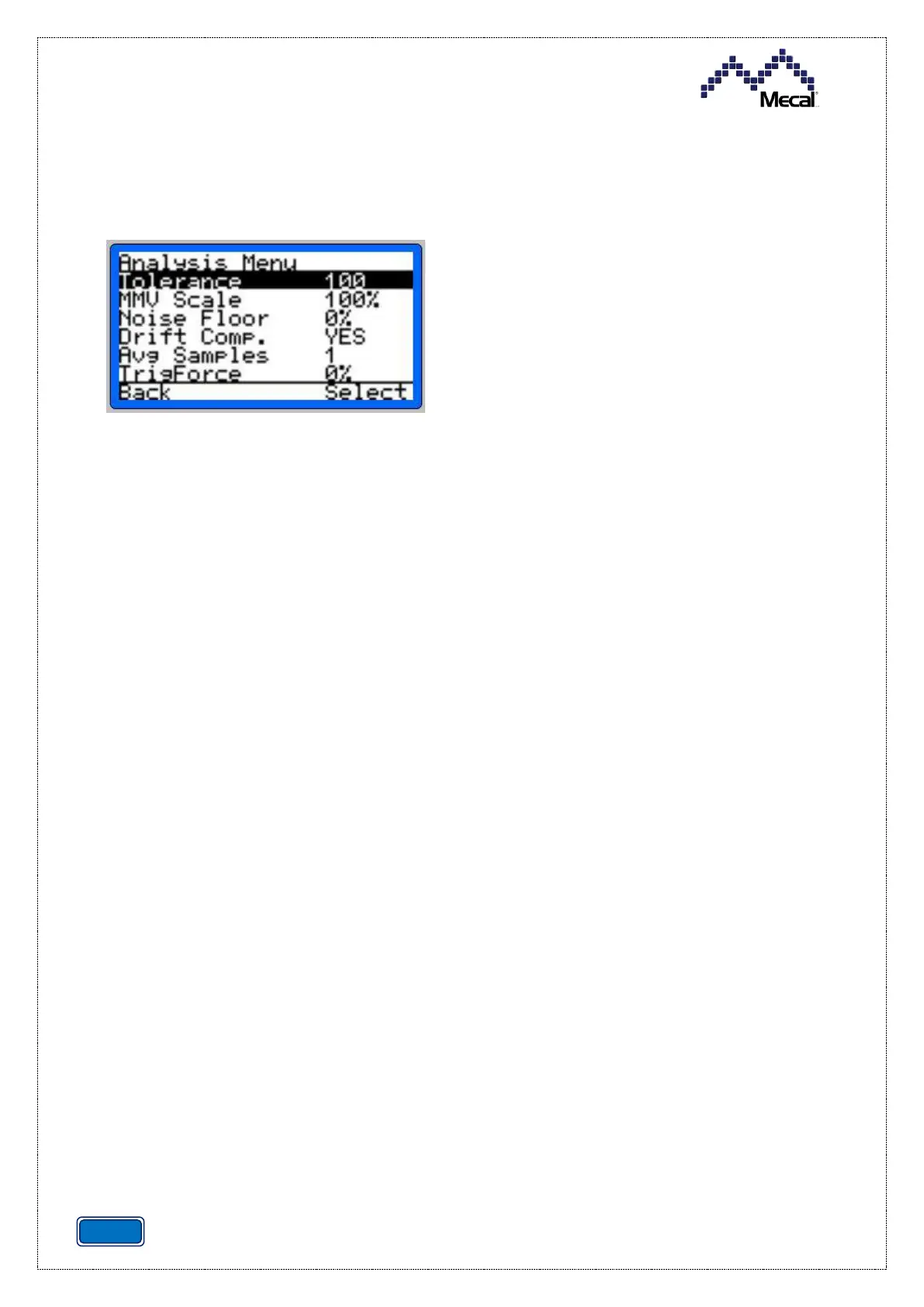CRIMP DATA ANALYZER
CDA10
REV.01
6.6.5 PARAMETERS SETTING (ANALYSIS MENU)
From the "Analysis" menu, you can set the tolerance for the non-correspondence value. The higher
the number set, the less sensitive the correspondence evaluation will be.
Menu → Setup → Analysis
• Tolerance
You can set the tolerance for the non-correspondence value. The higher the number set, the less
sensitive the correspondence evaluation will be.
Whenever a new crimping process is initiated, the controller tolerance setting must be adjusted so
that as many faults as possible can be detected, but without wrongly detecting good crimping that
is reported as faulty.
• MMV Scale
This setting lets the user adjust the sensitivity of the analysis, if it becomes necessary to compare
the sensitivity with another control unit. The basic value returned from the analysis is then
multiplied by this scale factor.
The range is between 20% and 200%, while the default value is 100% (the default value is 77% for
TCM software).
• Noise Floor
This parameter lets the operator set a threshold relative to the reference curve peak. Any position
of the curve below the set threshold is then ignored. This function can be used to
suppress unstable "noise" that may occur at the beginning of the force curve.
The range is 0% to 90% and the default value is 0%.
• Drift Comp.
This setting lets the operator enable or disable the drift compensation function.
Normally, after a correct "Pass" result, the reference curve is automatically adjusted, moving it
slightly closer in line with the last force curve. This allows the control unit to keep track of gradual
process variations. There is a safety limit within which the curve can be adjusted; when that limit
is reached, the controller reports a "Fail" result.
Drift Compensation is a useful feature in the production process, but it can cause inconsistent
results to be detected if the operator is deliberately forcing faults. For example, if small crimping
errors (such as removing a strand from the cable) are being detected, the control unit may not
detect the fault as a "Fail".
